Six undergraduates of Dalian Minzu University are building a wooden miniature of the Palace Museum at a scale of 1:1000.
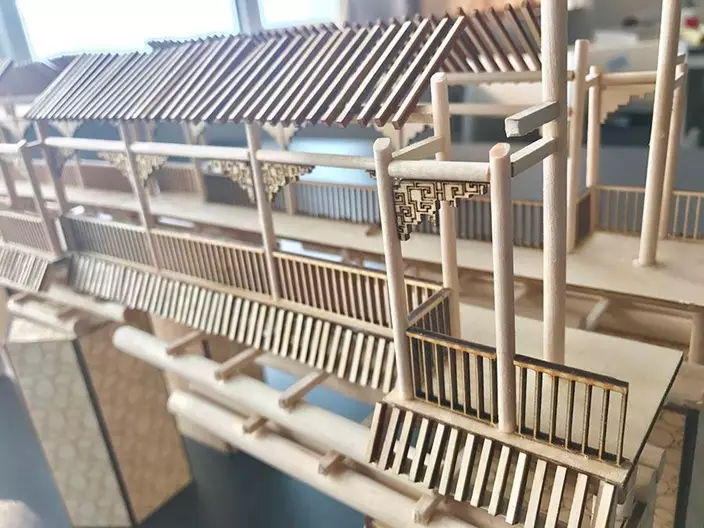
(Photo provided to China Daily)
The museum, also known as the Forbidden City, is the largest imperial architecture complex and collection of wooden construction in the world. It covers an area of 720,000 square meters, and boasts more than 70 palaces and 9,000 rooms large and small.
With the wooden board of about 1.5 meters by 1.2 meters, the students give a full view of the Palace Museum - the Taihedian or the Hall of Supreme Harmony, the Meridian Gate, walls and moat, and even the windows and steps are clearly visible.
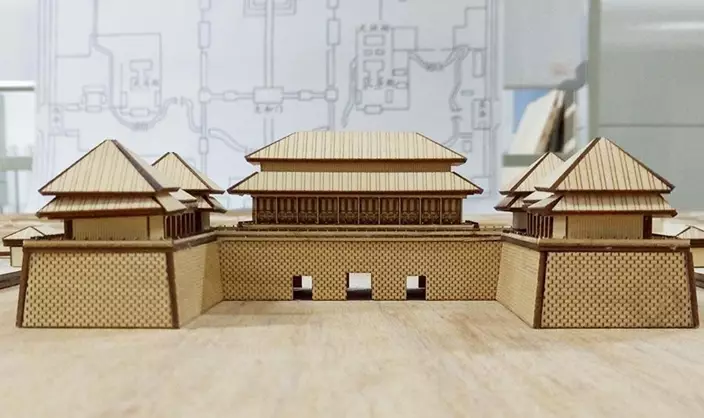
(Photo provided to China Daily)
According to Duan Xiangyu, one of the six team members, it took one month for them to make preparations and create a rudimentary structure.
They went through huge amount of data and information and checked the features and size of each building.
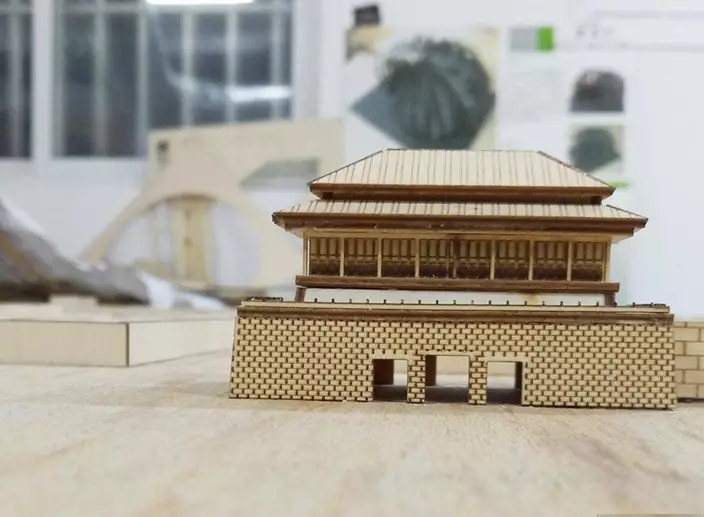
(Photo provided to China Daily)
Then they designed 3D models on the computer and processed wood with laser cutting machine. For some details, they needed to sculpture and paint manually. Duan, a junior majoring in environmental design at the architecture school of the university, said the goal behind the small-scale reproduction of the Palace Museum is to take part in an annual architectural model competition held by Dalian Minzu University.
"During the creation of this work, we learned to improve our technical skills from a practical point of view," Duan said. "We also explored the broad and profound ancient Chinese culture once again."
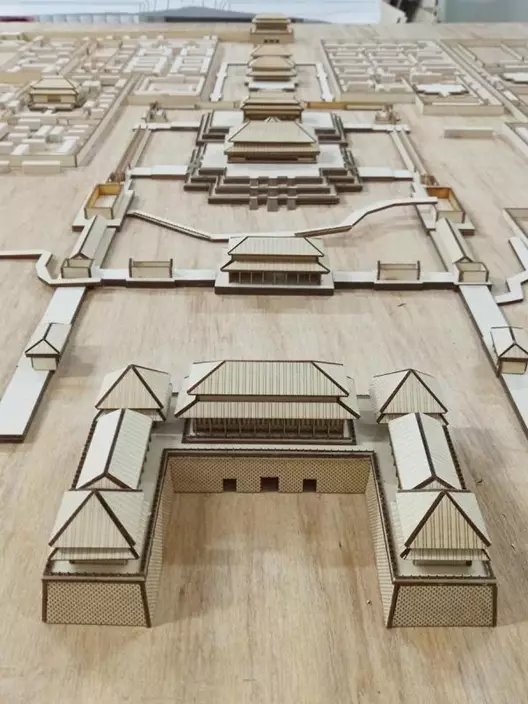
(Photo provided to China Daily)
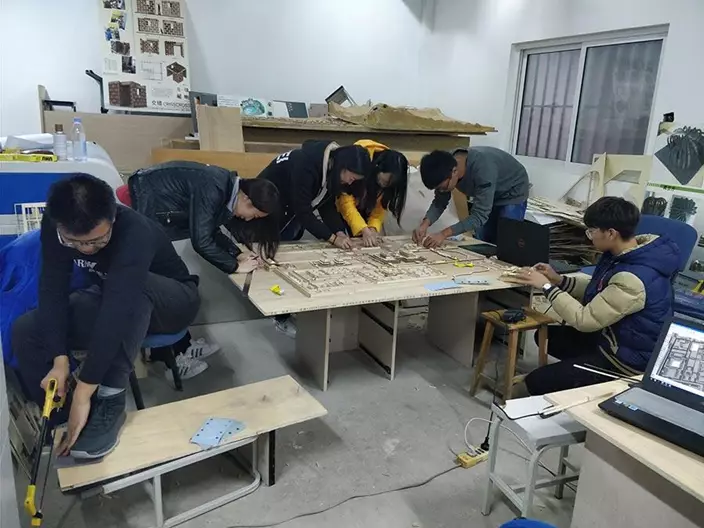
(Photo provided to China Daily)


